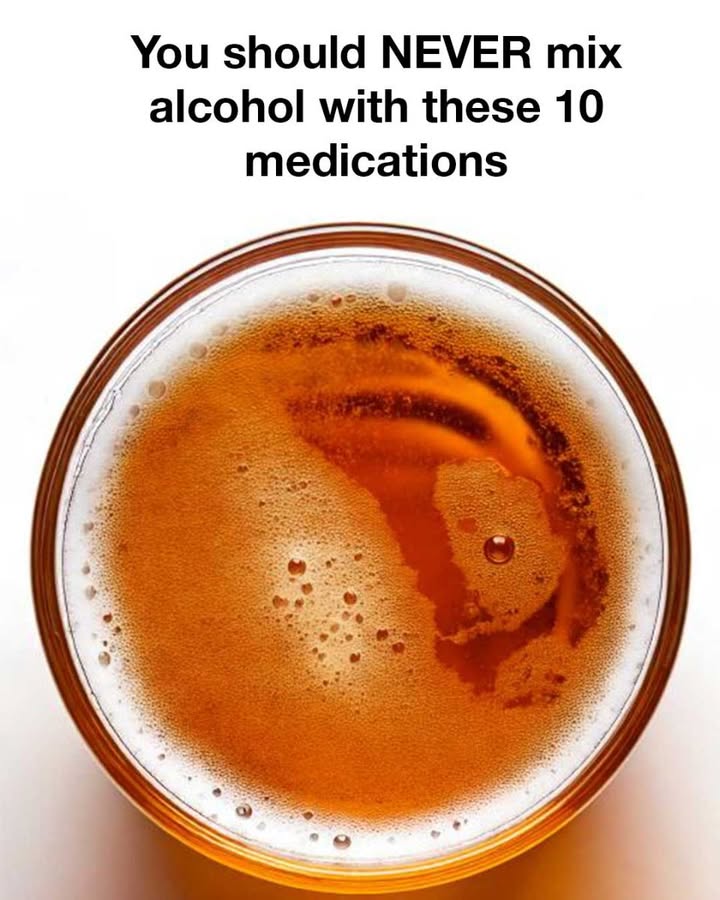I had no clue

The Risks and Consequences of Mixing Alcohol with Medications
The consequences of mixing alcohol with medications can range from mild to severe. Common risks include increased drowsiness, dizziness, liver damage, gastrointestinal bleeding, and impaired motor skills. In some cases, mixing alcohol with medications can lead to life-threatening conditions such as respiratory depression, heart problems, or severe allergic reactions. It's essential to be aware of these risks and to avoid alcohol when taking medications that can interact with it.
Medication 1: Antidepressants and Alcohol
Antidepressants, such as SSRIs and MAOIs, can have dangerous interactions with alcohol. Alcohol can worsen depression and anxiety symptoms, counteracting the benefits of antidepressants. Additionally, combining alcohol with these medications can increase the risk of side effects like dizziness, drowsiness, and impaired judgment. In some cases, it can lead to more severe effects such as increased blood pressure or serotonin syndrome.
Medication 2: Anti-Anxiety Medications and Alcohol
Benzodiazepines and other anti-anxiety medications can have their sedative effects dangerously amplified by alcohol. This combination can lead to extreme drowsiness, respiratory depression, and even coma or death. It's crucial to avoid alcohol when taking these medications to prevent these potentially life-threatening effects.
Medication 3: Pain Relievers and Alcohol
Mixing alcohol with pain relievers, especially opioids and acetaminophen, can be extremely dangerous. Alcohol can increase the sedative effects of opioids, leading to respiratory depression and overdose. With acetaminophen, alcohol can increase the risk of liver damage. It's important to avoid alcohol when taking these medications to prevent these serious health risks.
Medication 4: Sleeping Pills and Alcohol
Sleeping pills, such as zolpidem and eszopiclone, can have their sedative effects greatly enhanced by alcohol. This combination can lead to extreme drowsiness, confusion, impaired motor skills, and respiratory depression. It's essential to avoid alcohol when taking sleeping pills to ensure safety and effectiveness.
Medication 5: Antihistamines and Alcohol
Antihistamines, commonly used for allergies, can cause drowsiness on their own. When combined with alcohol, this effect can be intensified, leading to increased sedation, dizziness, and impaired coordination. This can be particularly dangerous when driving or operating machinery, so it's best to avoid alcohol when taking antihistamines.
Medication 6: Antibiotics and Alcohol
While not all antibiotics interact with alcohol, some, like metronidazole and tinidazole, can cause severe reactions when combined with alcohol. These reactions can include nausea, vomiting, flushing, and rapid heart rate. It's important to check with a healthcare provider or pharmacist about potential interactions before consuming alcohol while on antibiotics.
Medication 7: Diabetes Medications and Alcohol
Alcohol can affect blood sugar levels, which can be particularly dangerous for individuals taking diabetes medications like insulin or sulfonylureas. Mixing alcohol with these medications can lead to hypoglycemia (low blood sugar) or hyperglycemia (high blood sugar), both of which can have serious health consequences. It's crucial for individuals with diabetes to monitor their alcohol intake carefully.
Medication 8: Blood Thinners and Alcohol
Blood thinners, such as warfarin, can have their effects altered by alcohol. Alcohol can increase the risk of bleeding by enhancing the anticoagulant effects of these medications. This can lead to serious complications such as gastrointestinal bleeding or hemorrhagic stroke. It's important to limit alcohol consumption and consult with a healthcare provider when taking blood thinners.
Medication 9: Antipsychotics and Alcohol
Antipsychotic medications can have their sedative effects amplified by alcohol, leading to increased drowsiness, dizziness, and impaired motor skills. This combination can also exacerbate mental health symptoms and reduce the effectiveness of the medication. Avoiding alcohol is important for individuals taking antipsychotics to ensure safety and therapeutic efficacy.
Medication 10: Seizure Medications and Alcohol
Alcohol can lower the seizure threshold, increasing the risk of seizures in individuals taking anticonvulsant medications. Additionally, alcohol can interfere with the effectiveness of these medications, making it more difficult to control seizures. It's essential for individuals with seizure disorders to avoid alcohol to maintain seizure control and medication effectiveness.